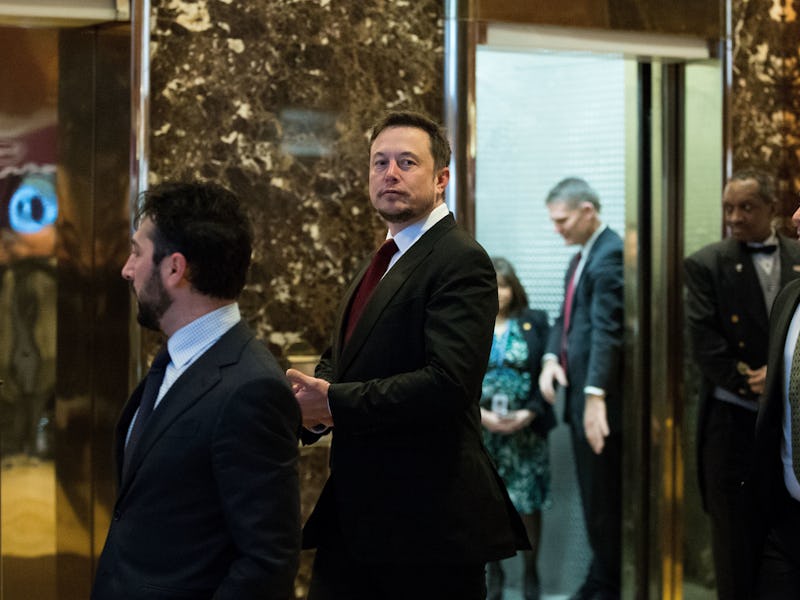Elon Musk Offers More Color on Why He Quit Trump's Councils
"I think the country needs to keep its word."

SpaceX and Tesla CEO Elon Musk offered a little more color on Saturday as to why he quit two of President Donald Trump’s advisory committees — one on economic policy and the other a technology council for CEOs — and it came down to Trump quitting the Paris Climate Agreement.
“I just really think that the Paris Accord, man, if I stayed on the councils, I would essentially be saying that wasn’t important, but it is super-important,” Musk said at the National Governors Association meeting on Saturday in Rhode Island. “I think the country needs to keep its word.”
The Paris Climate Agreement saw 195 nations commit to lowering their carbon emissions levels toward a big goal of stopping global temperatures from rising 2 degrees Celsius over pre-Industrial levels. Trump said the agreement asked too much of America and not enough of other countries and might result in job loss.
"I thought it was worth doing," Musk said of his short tenure as an informal advisor to President Donald Trump. "I did my best."
“You know, it’s not even a binding agreement, so you could always like, slow it down,” Musk said. “The argument that there would be job losses — well, we could see if there are job losses before we exit the agreement. Maybe there won’t be job losses, maybe there will be job gains. Yeah, there’s just no way I could stay on after that.
“So, you know, I did my best,” Musk said somberly.
In late April, while still a member of the councils, Musk appeared at the TED 2017 conference, and defended his choice to advise Trump, saying then: “I’ve used the meetings I’ve had thus far to argue in favor of immigration and in favor of climate change,” Musk said.
Then, on June 1, the same day that Trump announced the United States would back out of the agreement, Musk said he was quitting Trump’s councils:
On Saturday, Musk reflected a little more about his role on the councils: “In every meeting I was just trying to make the arguments in favor of sustainability, sometimes other issues, like we need to make sure our immigration laws are not unkind or unreasonable,” he said. “And, I, you know, did my best. I think in a few cases I did actually make some progress, which gave me some encouragement to continue.”
He noted that he was the target of a full-page ad in the New York Times and the subject of a “dump Trump” billboard campaign.
“I got a lot of flack from multiple fronts for even trying,” he said.